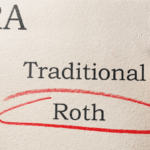Life insurance for seniors may be more than just a tool for financial protection. It can be a strategic component of a comprehensive estate plan. Retirement planning not only secures one’s future but also ensures financial security for their family. Life insurance policies also come with annuity plans, which can ensure pension payouts after retirement.
Today, You will learn:
- What is a Life Insurance Retirement plan?
- The Need for Life Insurance
- How You Choose a Life Insurance that fits Your needs and Economic situation
- Different Types of Life Insurance Policies
- Strategies to Fund Retirement with Your Life Insurance
- What happens to My Life Insurance when I Retire?
- The importance of Life Insurance in your retirement plan
What is a Life Insurance Retirement plan?
LIRP stands for “life insurance retirement plan.” With a LIRP, you plan to use your life insurance policy’s cash value to assist you financially during your retirement years.
- LIRPs make sense if you’re already maxing out your IRA or 401(k) and want to invest more for your retirement years.
- To start such a plan, get a permanent policy that allows you to “overpay” your premiums. In other words, you’ll pay more than the required premium whenever possible, so your cash value builds faster.
- Universal life insurance is known for having flexible premiums and can be used as a LIRP. Your policy’s cash value will grow over time.
- There’s also indexed universal life insurance, which allows for some cash value growth through an equity index account.

The Need for Life Insurance in Retirement Plans
Getting life insurance for retirement isn’t mandatory, but it can help when you pass away in your retirement years. Final expense life insurance can help your loved ones pay for expensive costs after you pass, like medical bills and funeral expenses.
- For seniors, the purpose of life insurance shifts from income replacement to fulfilling other financial objectives. These can include covering final expenses, paying off debts, or providing for a spouse’s living expenses. Additionally, life insurance can be used to leave a legacy for heirs or charities.
Key considerations include financial obligations, estate size, and overall health!
- The decision to maintain or purchase life insurance in retirement should be based on individual circumstances. Seniors with significant debts, a sizable estate, or dependents may find life insurance more necessary. Conversely, those with minimal debts and sufficient assets to cover final expenses may not require additional coverage.
How You Choose a Life Insurance that fits Your Needs and Economic situation
You can typically change how much your policy costs by adjusting these two life insurance cost factors:
- How long your policy will last
- How much will it pay out upon your passing
Policies that last less time and have lower coverage amounts are more affordable. Keep in mind that your age and health may affect the coverage amounts you’re eligible for.
Ideally, you select the amount that can adequately provide for your beneficiaries for the length of time they’ll need support, and at a premium, you can afford over time. Remember to factor in your savings, investments, and how your financial situation will change when you retire.
Selecting a Coverage length
- If you decide to purchase term life insurance, you’ll be given term length options, usually between 10 and 30 years, depending on your eligibility.
- The maximum term period you’re eligible for typically decreases as you age. If you’re in your 20s or 30s and planning for retirement, it can make sense to opt for the longest term you qualify for.
Selecting a Payout amount
- When determining the payout amount your loved ones will receive upon your death, add up their expected living expenses, emergency costs that may come up, and any potential outstanding debt.
- Life insurance payouts might be distributed all at once or over time, so your beneficiaries will need to plan accordingly.
Different Types of Life Insurance Policies
Life insurance policies have an important role to play. Most people commonly assume that life insurance policies are only for pure protection and provide a cushion to their loved ones in case of an unfortunate event. But you should know that they can also be great financial tools that can help in retirement planning. They are low-risk, excellent for lowering taxes, and ideal for goal-based savings, such as retirement.
Here are the two primary types:
Term Life Insurance
- This type of policy provides coverage for a certain period, often ranging from 10 to 30 years. It is generally less expensive but does not build cash value. For seniors, term life can be cost-effective if coverage is only needed for a limited time, such as until a debt is paid off.
Permanent Life Insurance
- This includes whole life, universal life, and variable life policies. Unlike term insurance, permanent policies provide lifelong coverage and can accumulate cash value. Whole life insurance offers fixed premiums and guaranteed cash value accumulation, making it a predictable choice for estate planning. Universal life offers more flexibility in premiums and death benefits but with greater risk due to its association with market performance.
Contact a trusted financial advisor who can help you evaluate your unique situation, explore your options, and integrate life insurance effectively into your overall financial strategy.
Strategies to Fund Retirement with Your Life Insurance
It’s understandable if your life insurance policy is not top of mind for you on a daily basis. But did you know that, aside from paying your beneficiaries money upon your death, there are other benefits worth exploring?
Building cash value
- One of the benefits of a permanent life policy is the ability to accrue “cash value.” In its simplest form, the cash value within a policy is the balance remaining after a portion of a premium payment is applied to insurance costs.
Using life insurance for retirement income
- The cash-value account grows over time and can be withdrawn as a source of income in retirement. Provided the amount withdrawn doesn’t exceed the amount you’ve paid in premiums, it’s not subject to taxes, either.
Borrowing from yourself
- You can also use life insurance for retirement by borrowing from your cash value. Think of it as a loan you’re getting from your future self. Technically, you’re not required to re-pay it. However, it will accrue interest, and ultimately, the loan amount will be deducted from the death benefit (i.e., the amount paid out to your family upon your death).
Paying your policy with your policy
- If you’re reassessing your budget items in prepping for retirement, another thing worth noting for permanent life policyholders is the ability to pay upcoming policy premiums with your cash value.
As you look ahead to retirement, it’s worth exploring how your policy can be used as a source of income to help maintain your lifestyle.
So, What happens to My Life Insurance when I Retire?
Your individual life insurance policies won’t be affected by your retirement, and most employer-provided group life insurance policies end when you retire.
- In some cases, you may be able to transfer or “port” your employer life insurance to continue your coverage, but this is dependent on the group policy’s terms.
If your employer-provided coverage ends and you don’t already have supplemental life insurance, you can look into getting an individual life policy like final expense insurance, also called burial insurance. It’s affordable and designed for older individuals.
Get Ready to Make Your Decision!
Every working individual stops working at some point. Retiring from work can often mean retiring from the present lifestyle as regular income stops or reduces. Retirement is also the time when expenses may rise due to health issues and inflation.
This is why retirement planning is an important aspect, and one must consider it as early as possible!
- Life insurance plans offer regular income in retirement
- Life insurance policies are low risk
- Life insurance retirement plans follow a disciplined approach
- Life insurance helps you be self-reliable
- Life insurance can help you with medical expenses
- Life insurance lets you save on tax
Life Insurance may allow you to live the life you want today and enjoy your years in the future. So take action today and talk to a financial advisor about the plan that best fits you!
- Life insurance helps protect your family’s future, covering expenses such as medical bills, funeral costs, debts, mortgage payments, and tuition.
- Life insurance replaces income for your family in the event of your death, ensuring their financial stability and preventing immediate hardship.
- Some types of life insurance accumulate cash value over time, offering access to funds for temporary financial needs or unexpected expenses.
- Life insurance can help bring peace of mind by providing financial stability during difficult times, such as covering funeral costs and immediate expenses.
- Life insurance can be used for legacy planning, leaving a financial inheritance for loved ones, or supporting charitable causes.

About Author
Bill Wallace blends his academic background in Literature with his ventures in International Business and finance. His professional journey took him across Europe, especially in Spain, where his passion for writing evolved. Since then, armed with his literary finesse and investment acumen, he has been crafting financial content for teachers worldwide. More about me.
Similar Read:





